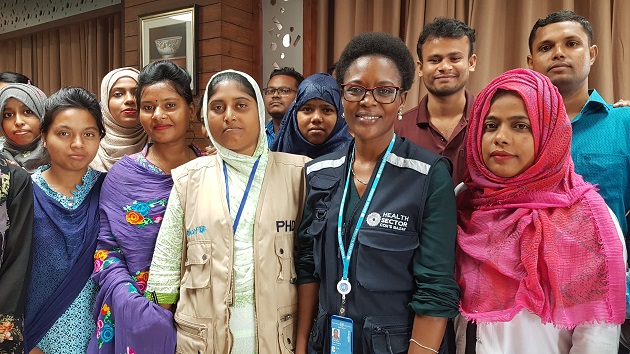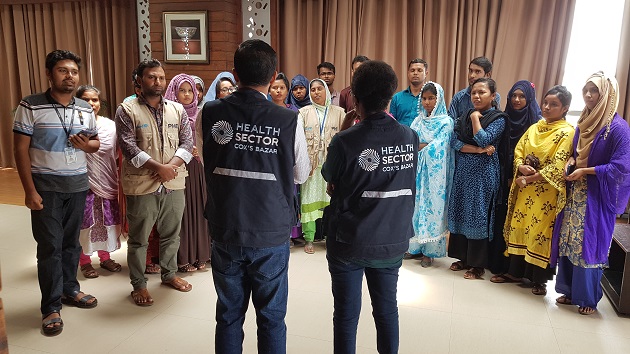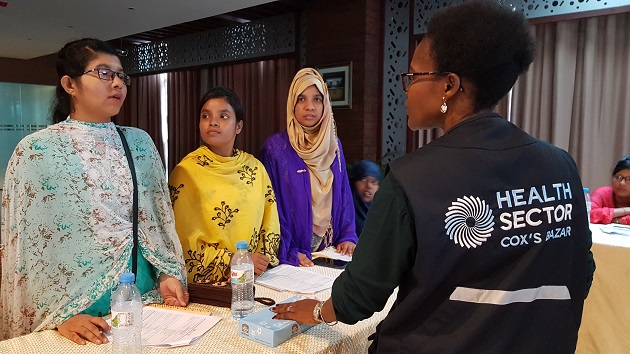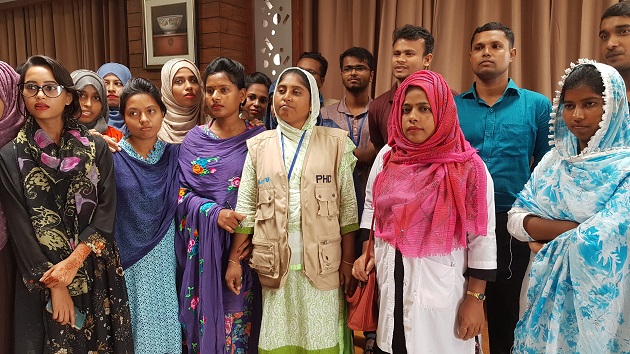Cox’s Bazar, Bangladesh - WHO is calling health providers working at the Rohingya refugee camps to help break the cycle of gender-based violence that affects 1 in 3 women globally. Mostly perpetrated by intimate partners, GBV impacts women’s health and well-being, causing unintended pregnancies, mental health problems, sexually transmitted infections and HIV, among other health conditions.
“If you suspect that your patient is presenting some signs or conditions that can be linked to violence, do not pressure her. Instead, listen to her, create an empathic and friendly environment and offer information about the consequences of violence on her health until she feels comfortable to confide in you”, explains Anne, WHO Gender-based Violence Technical officer for the health sector.

Among the 150 health posts currently serving Rohingya refugees and host population in Cox’s Bazar district, WHO has identified midwives, community health counselors, paramedics, medical assistants and nurses, and called them to integrate the first line support to the GBV survivors.
The health professionals are being trained to provide emotional and physical support, facilitate safe referrals to other service providers and speak out to end violence.
During the training, the participants discussed the importance of challenging social norms that accept violence against women and girls to understand the roots of gender-based violence and learn how to mitigate the health effects of the various forms of violence by providing timely response in a confidential and empathic manner.

“Sometimes you can’t find visible injuries. You must be alert to other signs and symptoms: if the woman is missing her doctor appointments and not vaccinating her children, something might be preventing her to leave the house. Other women might also show signs of stress, anxiety or depression”, says Anne.

“Recently I had a patient - mother of three - who had asked for a contraceptive implant. While we were preparing the procedure, her mother in law entered the room and prohibited her to do it. I didn’t know how to help her”, says Taslima Akter, currently working at Camp 13 as a Community Health Counselor.
“This is a very important example, sometimes the mother or sister of the abuser is contributing to the domestic violence”, says Anne. For this reason, any suspicion that a patient is experiencing violence should be raised only when he/she is alone. The WHO technical officer for GBV, also explained that GBV against men and boys remain invisible and must be addressed.

The participants also learned that health and safety options should be explained to the survivors, both female and male, to enable them to make informed decisions and ensure their consent before making referrals to the services available to them: mental health care, emergency shelter/safe house, legal assistance, health care within 72h especially for survivors of sexual assault and intimate partner violence.
To stop gender-based violence, WHO is calling its partners to provide timely access to health services, ensure training to all health providers and strengthen evidence and data collection. Government and health organizations’ combined efforts can help increase access to skilled professionals and lifesaving treatment for GBV survivors.
